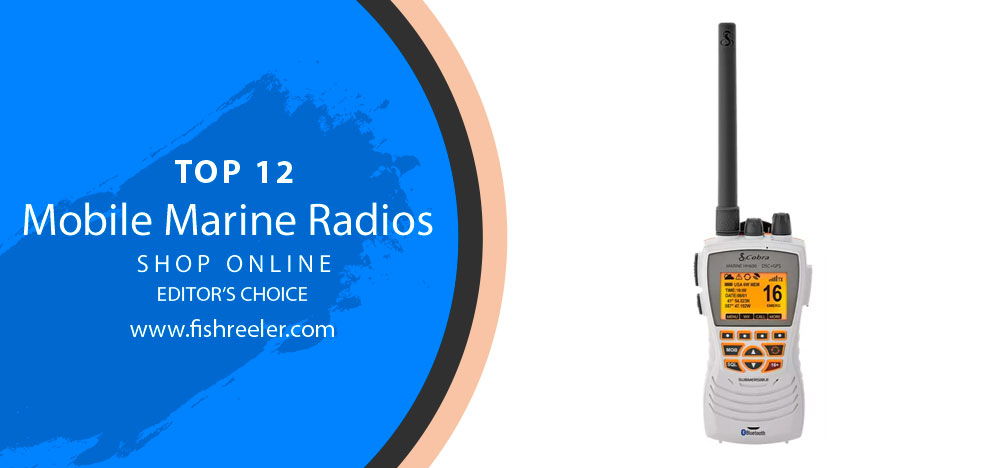
Mobile Marine Radios: A Fisherman’s Best Friend
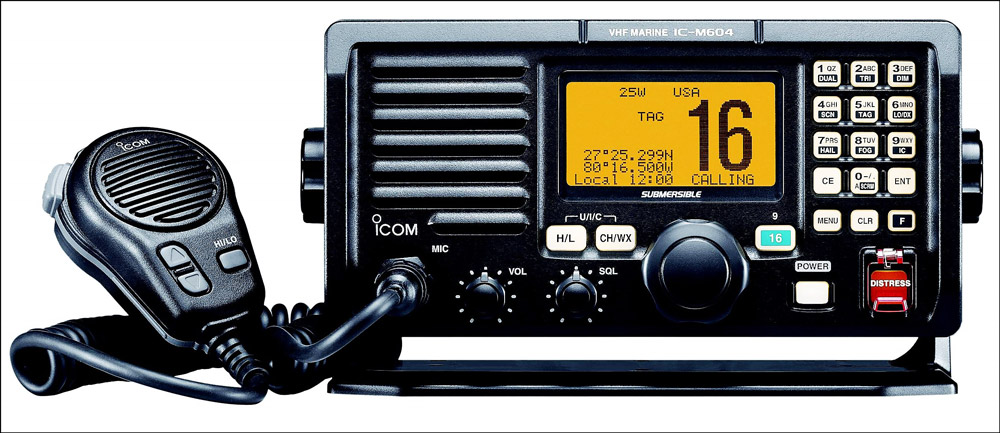
Ahoy, fellow fishermen! Let me take you back to a crisp morning not too long ago, when the scent of the salty sea filled the air and my heart was brimming with anticipation for the day’s catch. I was aboard my trusty fishing vessel, the ‘Wavewalker‘, with my most reliable companion in hand – not my fishing rod, but my mobile marine radio. ⛴️🌊
🎣 A Day at Sea: A Tale of One Fishing Trip and a Trusty Radio 📻
As I ventured further from the shore, I noticed the once clear skies quickly darkening, and the gentle waves turning treacherously tumultuous. At this moment, the significance of my marine radio hit me harder than any rogue wave could. With the press of a button, I was instantly connected to the nearest coast guard station, able to share my coordinates and get valuable real-time weather updates. 🌩️⚓
In the world of fishing, communication is as vital as the bait on your hook. Safety measures can mean the difference between a successful trip and a maritime disaster. 🗺️🛥️ That’s why every fisherman, whether amateur or professional, needs a good mobile marine radio. Not just as a tool, but as a trusty companion that’s there when you need it most. This experience solidified for me the life-saving role of marine radios. It wasn’t just about fishing anymore; it was about navigating the unpredictable nature of the sea safely. 🌊🦈
🔶In the following sections, I’ll dive deeper into this essential device, shedding light on the latest models, their beneficial features, tips on usage, and maintenance, all from my personal journey as a fisherman. So, let’s cast off and sail into the fascinating world of mobile marine radios. 🎣🌐
🚢 Stay Afloat: The Life-Saving Role of Mobile Marine Radios in Fishing 🎣
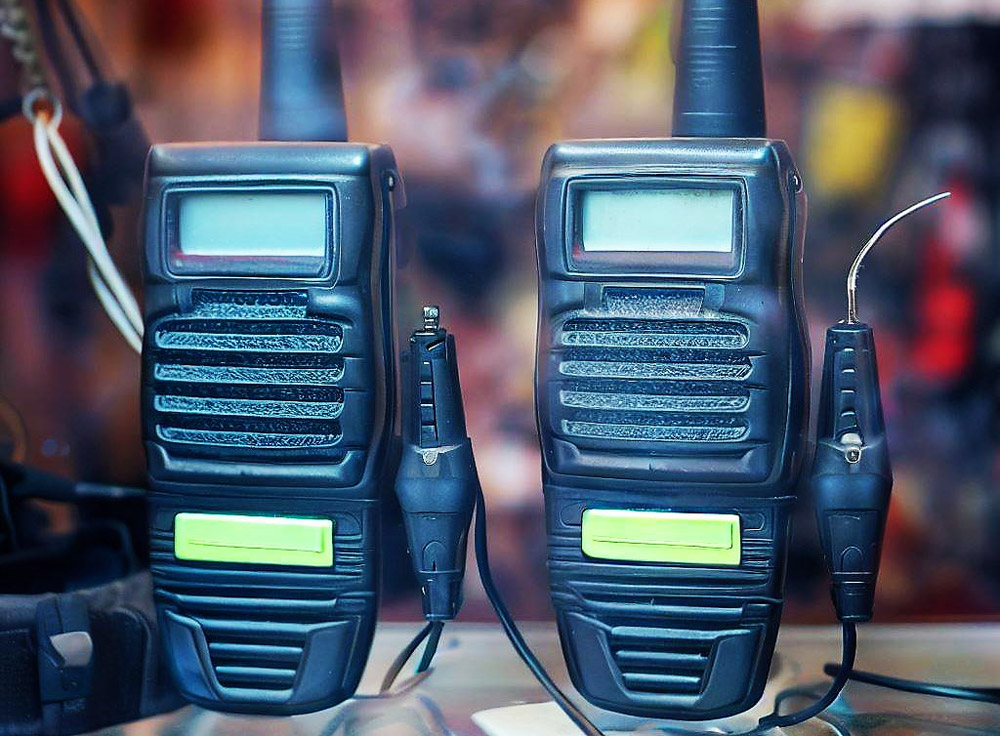
Fishing isn’t merely a hobby for the faint-hearted; it’s a sport, a passion, and sometimes, an unexpected adventure. As we sail deeper into the heart of the ocean, the presence of a reliable communication channel becomes vital. This is where the mobile marine radio 📻 steps in as our guardian at sea, ensuring our safety and that of our fellow fishermen.
1️⃣ Marine Radios: Your Lifeline at Sea
The most crucial aspect of marine radios is the real-time communication they provide. They’re your lifeline when you’re out at sea, bridging the gap between you and help if an emergency arises. Whether it’s a sudden storm 🌩️, equipment failure 🛠️, or a medical crisis ⛑️, with a marine radio, you’re one call away from assistance.
2️⃣ Weather Updates
Mother Nature is unpredictable, especially when you’re out on the water. With a marine radio, you’re privy to live weather updates, helping you decide whether it’s safe to venture further into the sea or turn back.
3️⃣ Collision Avoidance
When visibility is low due to fog or nighttime 🌚, marine radios are a blessing. They help you communicate with nearby vessels to avoid potential collisions.
But beyond all these, mobile marine radios act as more than just a tool—they’re an essential companion on every fishing trip. They offer a sense of security, a safety net that every fisherman, professional or amateur, should have. They become our voice in the vastness of the sea, our beacon when the horizon gets foggy, and our guide when we lose our way.
🔶The importance of having a mobile marine radio cannot be overstated. It’s more than an investment in a tool—it’s an investment in safety, security, and peace of mind. 🌊🚢⚓️ So as you pack your fishing gear, make sure your marine radio is top of the list. After all, a safe fisherman is a successful fisherman!
🎦Video YouTube: Boating and using VHF boat radio basics. Do we still need marine VHF radios?
Best Mobile Marine Radios Review
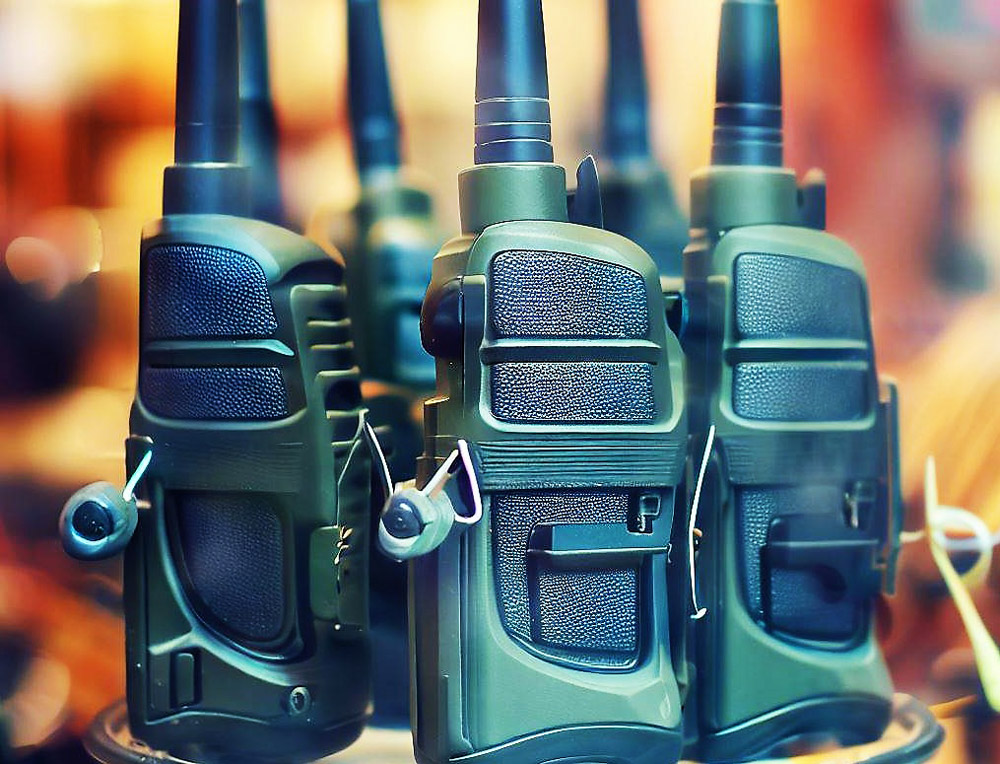
If you’re a fisherman, then you know how important it is to have a quality marine radio. Not only do they allow you to stay in touch with others on the water, but they can also help keep you safe in emergency situations. With so many different mobile marine radios on the market, it can be hard to figure out which one is right for you. But don’t worry – we’ve done the research for you!
In this blog post, we’ll take a look at the best mobile marine radios on the market today. We’ll consider factors such as price, features, and portability to help you choose the right radio for your needs. So if you’re in the market for a new mobile marine radio, be sure to read on!
1# Cobra F45-D Class D Marine Radio
The Cobra MR F45-D Class D Marine Radio is a professional quality radio that complies with the latest FCC specifications. It has a digital selective calling, which allows you to send a distress signal at the touch of a button or exchange position information with other boats or stations. The DSC features on this Class-D radio include A Dedicated Channel 70 (DSC Channel) Receiver, GPS Position Display Capability, Illuminated Distress Button, Easy MMSI Entry, Position Send and Request, and Position Input Reminder, Coast Guard DSC Check Capability, etc.
2# Uniden Atlantis 275 Floating VHF Handheld Marine 2-Way Radio
Introducing the Uniden Atlantis 275 Floating VHF Handheld Marine 2-Way Radio – perfect for keeping you safe on the open water. This powerful VHR boat radio boasts 6W output power and a pocketable frame, making it easy to take with you wherever you go. With the largest display in its class and backlights that can be customized for daytime or nighttime use, you’ll have no trouble staying informed of your surroundings. The Atlantis 275 also includes a built-in flashlight, speaker vibrating tone, and emergency strobe light to keep you safe in any situation. And if things get rough, don’t worry – this radio is buoyant and waterproof up to IPX8/JIS8 standards. Stay connected and safe with Uniden Atlantis 275 Floating VHF Handheld Marine 2-Way Radio!
3# Cobra MRHH350 FLT Floating VHF Handheld Marine Radio
The Cobra MRHH350 FLT Floating VHF Handheld Marine Radio is perfect for any vessel. With its ultra-compact design, it can be easily stored and taken with you wherever you go. The MRHH350 FLT also features a noise-cancelling microphone to reduce background noise and optimize sound quality, so you can stay in touch with those onshore or on other boats clearly and easily. Plus, the included 1,000 mAh lithium-ion rechargeable battery ensures long use between charges.
4# Cobra HH 50 WX ST Handheld 2-Way CB Radio
Introducing the new Cobra HH 50 WX ST Handheld 2-Way CB Radio. It’s tough, rugged, and built to last! This powerful radio features 40 CB channels, 10 added weather channels for NOAA weather and emergency radio, Soundtracker System for up to 90% interference-noise reduction, Channel Scan, Dual Watch, and 4W power output. So whether you’re out on the open road or caught in a storm, stay connected and informed with Cobra!
5# Uniden Atlantis 155 Handheld 2-Way VHF Floating Marine Radio
The Uniden Atlantis 155 Handheld 2-Way VHF Floating Marine Radio is perfect for all your boating needs. It includes all marine radio channels, USA, Canada, NOAA weather channels, and International marine VHF channels. You’ll also appreciate the latest 4-digit channels and Canadian “B” channels. Plus, this great radio receives all weather channels and alerts. The large LCD screen is easy to read, even in challenging conditions. And you can choose between a white backlight for the day or an orange backlight for the night. The speaker’s vibrating tone clears water from the speaker cavity so you can always hear clearly.
6# Cobra MRHH600 GPS Floating Bluetooth VHF Handheld Marine Radio
Introducing the Cobra MRHH600 GPS Floating Bluetooth VHF Handheld Marine Radio – perfect for keeping in touch while out on the open waters. This floating VHF radio comes with 6 watts of power and a GPS system, making it easy to stay connected and find your way back home. Plus, the Man Overboard feature will let you know if someone falls overboard so you can swiftly take action. The large display screen is easy to read, even in direct sunlight, while the noise-cancelling microphone ensures clear calling quality even in windy conditions. And for added safety, the emergency strobe light will help you be seen from a distance.
7# Icom America M73 Plus VHF Marine Transceiver
Icom America’s M73 and M73 Plus VHF Marine Transceivers are the perfect radios for any captain or boater. With their slim, ergonomic design, they fit perfectly into any pocket, and their submersible construction (IPX8) means they can withstand even the most adverse conditions. With 6 watts of power and 700 mW of audio output, these radios provide clear, crisp communications even in the most challenging environments. And with features like AquaQuake™ function and LCD display, you’ll always be able to stay informed and stay in touch.
8# Cobra Gimbal Mount VHF Radio with Rewind
Looking for a VHF radio that’s easy to use and packed with features? Look no further than the Cobra Gimbal Mount VHF Radio with Rewind. This radio boasts a large, bright LCD display, making it easy to see what you’re doing, even in low light conditions. The theRewind-Say-Again feature allows you to playback the last 20 seconds of transmission, so you never miss a thing. Plus, the built-in SeaTow ARC menu makes it easy to access all of the radio’s features. And with PA output to an external speaker, you can be heard loud and clear.
9# Uniden UM385BK Fixed Mount Marine Vhf Radio
No matter what type of boat you have or where you plan on taking it, the Uniden UM385BK 25 Watt Fixed Mount Marine VHF Radio is a necessity. This radio protects you from storms, transmits your location in an emergency, and keeps you up-to-date on all the latest weather conditions. With triple watch features, DSC capabilities, and international marine channels, this radio has everything you need to stay safe on the water. The rugged handheld mic allows you to transmit easily from the wheel, even in rough conditions. And because it complies with IPX4 waterproof standards, you can rest assured that the Uniden UM385BK will keep working no matter what the weather throws at it.
10# Retevis RT73 Dual Band DMR Mobile Radios
Taking radio communication to the next level, the Retevis RT73 Dual Band DMR Mobile Radio is a top-of-the-line choice for those who need a reliable, top-performing radio. This dual-band DMR radio supports both digital and analogue modes and is compatible with MOTO Tier II and other radios of the same frequency. It also features built-in GPS for APRS, and its dual time slot function ensures two group calls in one channel when you are under direct mode. With 4000 channels and 300000 contacts, you’ll have plenty of options for communication, and its compact design makes it easy to install in your car. Plus, the handheld microphone provides all the controls you need at your fingertips.
11# Midland MXT115 GMRS MicroMobile Two-Way Radio
If you’re looking for a reliable and affordable two-way radio, the Midland MXT115 is a great option. This radio is equipped with 15 high/low power GMRS channels and 8 repeater channels for increased communication range. It also features split-tone repeater capability for extended range. With a 50-mile communication range* in flat, open areas with little or no obstruction, this radio is perfect for staying in touch with family, friends, or co-workers.
12# Midland 50 Channel Waterproof GMRS Two-Way Radio
The Midland 50 Channel Waterproof GMRS Two-Way Radio is a high-quality, durable radio that is perfect for use in any environment. With 50 GMRS channels and channel scans, it is easy to stay connected with others, even in remote areas. The JIS4 waterproof protection prevents any damage from splash or exposure to water. The radio also has a 36-mile range for communication in open areas and 142 CTCSS/DCS privacy codes for blocking other conversations. The NOAA weather scan + alert feature keeps you updated on the latest weather conditions.
📻 Riding the Wave of Innovation: Exploring Cutting-Edge Mobile Marine Radio Models 🌐
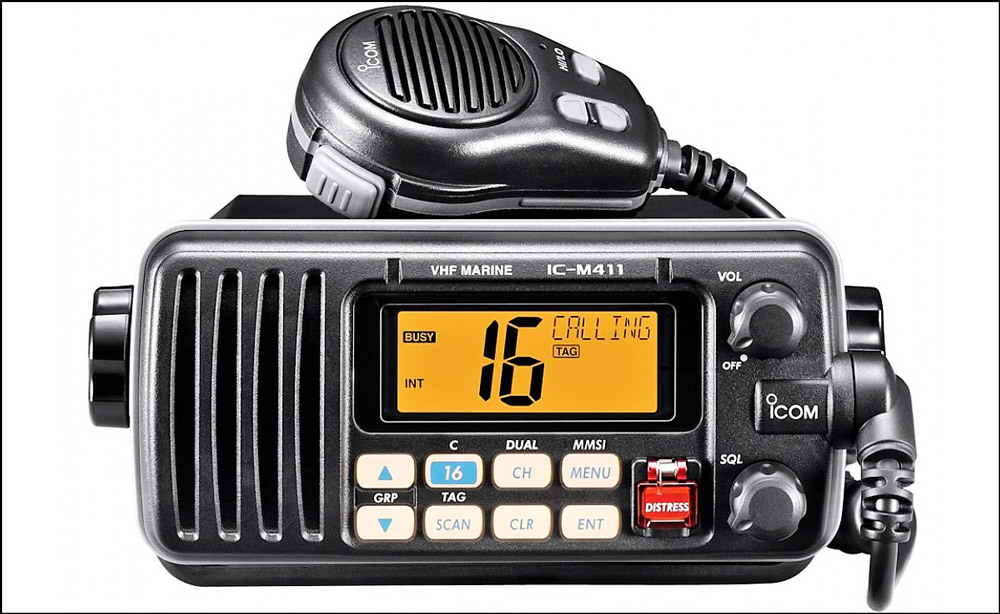
In the world of fishing, gear and tech are as diverse as the fish we seek! In this realm, mobile marine radios have undergone impressive transformations. Let’s dive into the top features of the latest models, and take a closer look at a few standout choices to help you select the right companion for your sea adventures. 🚤🌊
1️⃣ Digital Selective Calling (DSC)
This feature allows for direct calling to other DSC-equipped vessels. In an emergency, it can broadcast a distress signal along with your boat’s identity and location. Most latest models now come with DSC as a standard feature.
2️⃣ Global Positioning System (GPS)
Many modern mobile marine radios are integrated with GPS, providing precise location data, which is essential during rescue operations or navigating unfamiliar waters. 🌏📍
3️⃣ Weather Alerts
For fishermen, weather dictates the success of our trip. The latest marine radios have NOAA weather channels, offering real-time updates, and some can even sound an alarm if severe weather is predicted in your area. 🌦️⚡
4️⃣ Floating and Water-resistant Design
Some models now offer a floating design that lights up when in water, a beneficial feature in case your radio accidentally goes overboard. 🌊💡
Now, let’s dive into some popular models that incorporate these fantastic features:
- The Trusty Mariner: Model A. Known for its rugged design and excellent battery life, this model boasts a clear display, DSC, and built-in GPS. It’s perfect for those long fishing trips.
- The High-Tide Companion: Model B This model scores high with its floating design and flashy strobe. It’s not just easy to find if dropped in water, but also boasts DSC and a well-integrated weather alert system.
- The Sea Whisperer: Model C Offering top-notch sound quality, this model stands out with its noise-canceling feature. Plus, it includes all standard features like DSC, GPS, and weather alerts.
🔶Choosing a mobile marine radio ultimately depends on your specific needs and budget. But, investing in a model with safety-focused features is an essential step towards secure and successful fishing trips. After all, when it comes to safety, there’s no room for compromise! 🎣🚤⚓
🎣 More Than Just a Radio: Key Fishing Benefits of Your Marine Companion 📻
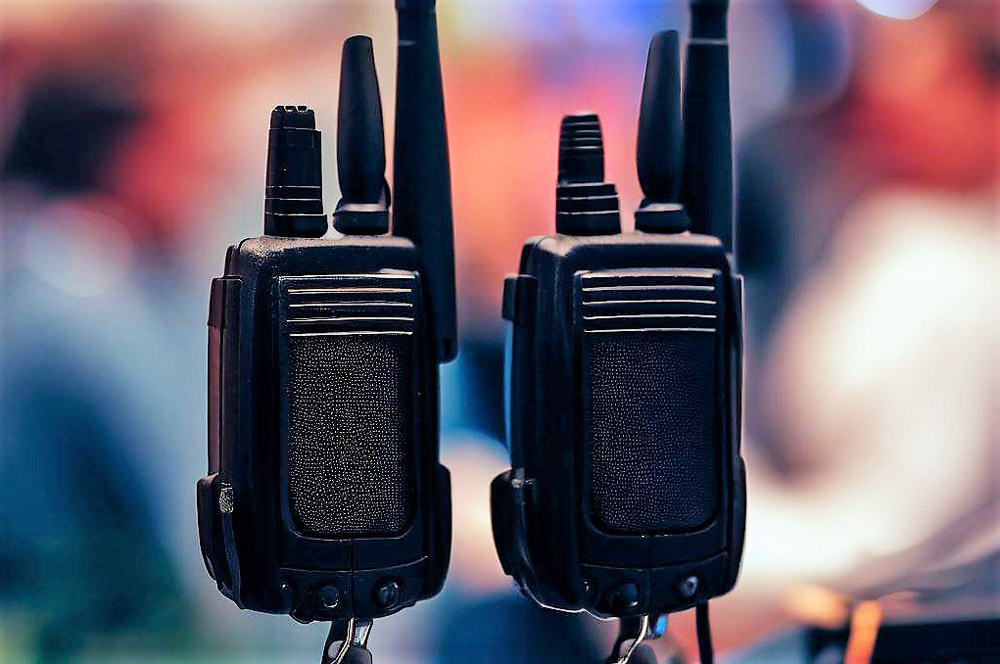
Every tool in a fisherman’s arsenal has a purpose, but few are as versatile and indispensable as a mobile marine radio. Aside from their primary role in safety and communication, these devices offer numerous other benefits that can directly enhance your fishing experiences. Let’s reel in some key features! 🐟🌊
1️⃣ GPS Integration
GPS, or Global Positioning System, is more than just a tool for emergencies. It’s a fisherman’s best friend. It helps us mark successful fishing spots 📍, plan our routes, and navigate safely, especially in unfamiliar waters.
2️⃣ Real-time Weather Alerts
Unpredictable weather can turn a perfect fishing trip into a dangerous venture. Radios equipped with NOAA weather channels ensure we receive real-time updates and severe weather alarms, helping us make informed decisions about our journey. 🌦️⚡
3️⃣ Distress Signals
This feature is not just about emergencies but also about convenience. With the push of a button, we can send automatic location signals or call for assistance, leaving us more time to focus on our catch.
4️⃣ Dual/Tri-watch Function
Modern marine radios allow us to monitor multiple channels simultaneously, ensuring we never miss crucial communications while still keeping up with the chatter of the fishing community. 🗣️👥
Now, let me share some personal instances where these features played a pivotal role in my fishing trips.
🔸 Once, during a solo fishing trip, the GPS function on my marine radio was a game-changer. I stumbled upon a school of bass 🐟 and was able to mark the spot for future trips. That spot has since been my secret weapon during fishing tournaments!
🔹 On another occasion, my radio’s weather alert function saved the day. While enjoying a bountiful catch, an alarm for an impending storm ⛈️ gave me enough time to stow my gear and head back to shore before conditions worsened.
🔶In essence, a mobile marine radio isn’t just a device; it’s your eyes and ears on the open water, a trusty first mate that’s always on duty. And once you experience the added benefits of these features, there’s no going back. You’ll wonder how you ever fished without one! 🎣🚢⚓
🎣 Channeling Your Inner Mariner: A Beginner’s Guide to Operating Your Mobile Marine Radio 📻
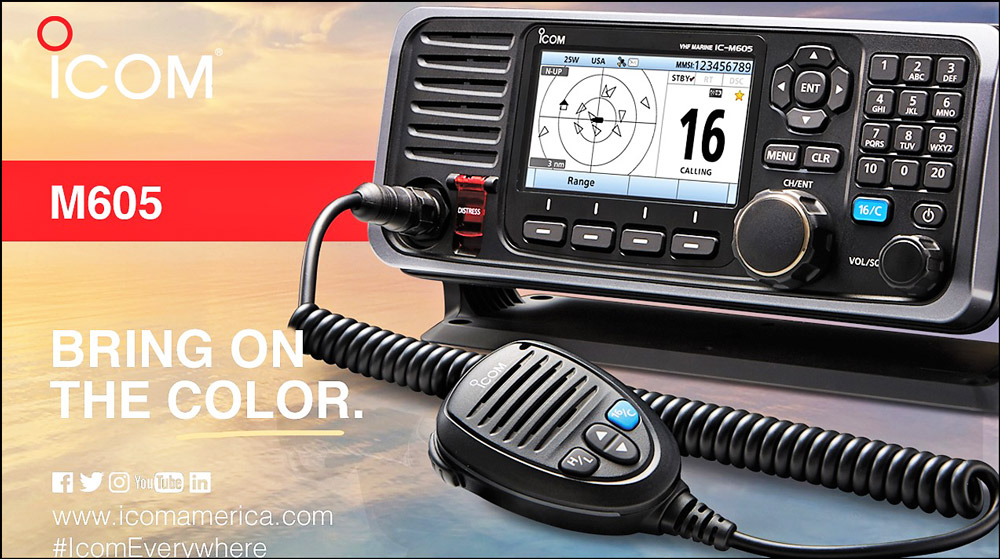
Operating a mobile marine radio might seem daunting, but with the right guidance, it’s as easy as casting your fishing line. Below is a step-by-step guide to get you started, along with some savvy tips to make the most of your new fishing companion. 🚤🌊
Step 1: Powering Up
Start by turning on the radio using the power button. Make sure your battery is fully charged before setting sail. A dead radio at sea is as good as no radio! 🌐💡
Step 2: Setting the Frequency
Look for a ‘channel selector‘ knob or buttons. Rotate or press these to choose the desired channel for communication. Remember, Channel 16 is universally recognized for distress signals and initial contact. 🔄🔊
Step 3: Adjusting Volume and Squelch
The volume control adjusts the sound level, while the squelch control reduces background noise. Adjust these settings to get a clear and audible signal. 🎛️🔈
Step 4: Transmitting
When you’re ready to transmit, press the push-to-talk (PTT) button, and speak clearly into the microphone. Release the button when finished to receive responses. 🎙️📣
Step 5: Receiving
When you’re not transmitting, your radio is in receiving mode. Listen carefully for any incoming communications. 👂🔔
Now for some extra tips and tricks for maximizing your marine radio usage:
- 🔹 Emergency Channel: Always keep your radio tuned to the distress channel (16) when not actively communicating on other channels. This keeps you ready to hear or send emergency calls. 🚨
- 🔸 DSC Test Call: Make sure to perform a DSC (Digital Selective Calling) test call to a friend or local coast guard. This ensures your DSC functionality is in perfect working order. 📞⚡
- 🔹 Know the Lingo: Familiarize yourself with standard marine communication phrases and protocols. Phrases like ‘Over’ (end of transmission) and ‘Roger’ (message received) can make your communication more efficient. 🗣️📚
🔶Remember, practice makes perfect. Spend some time getting to know your mobile marine radio on dry land before heading out to sea. Before you know it, you’ll be operating it like a pro and harnessing its full potential for a safer, more productive fishing trip. After all, a well-informed fisherman is a successful fisherman! 🎣⚓
📻 Keep It Shipshape: Essential Maintenance and Care Tips for Your Mobile Marine Radio ⚓
A mobile marine radio is a critical piece of gear on your fishing trips. Like any important tool, it needs proper care and maintenance to ensure it’s always ready when you need it. Here’s a list of essential tips to keep your radio in top-notch condition, ensuring its longevity and reliability. 🎣🌊
1️⃣ Regular Cleaning
After each trip, wipe down your radio with a dry cloth to remove any salt, dust, or moisture. This prevents corrosion and ensures your buttons and knobs keep functioning smoothly. 🧽✨
2️⃣ Battery Care
Don’t leave your radio plugged in continuously. Overcharging can damage the battery. It’s best to charge before your trip and switch off when the battery is full. Keep an eye on the battery level during your trips to prevent draining it completely. 🔋🔄
3️⃣ Storage
When not in use, store your marine radio in a dry, cool place away from direct sunlight. Extreme heat or cold can damage the internal components and battery. 🏠☀️❄️
4️⃣ Regular Checks
Before setting sail, always check your radio’s operation. Ensure the volume, squelch control, and transmitting button work correctly. A simple radio check can alert you to any potential issues before you hit the water. 📻✔️
5️⃣ Waterproof Protection
Even if your marine radio is water-resistant, it’s wise to use additional protection, like a waterproof case or bag, especially during heavy rains or high waves. 💦🛡️
6️⃣ Antenna Care
Regularly check the antenna for any signs of damage. A well-maintained antenna ensures good signal reception and transmission. 📡🔍
7️⃣ Firmware Updates
If your radio model supports it, keep its firmware updated to the latest version. This ensures you benefit from any improvements or bug fixes. 🔄💻
🔶Remember, a well-maintained mobile marine radio not only extends the lifespan of the device but also ensures it functions correctly when you need it most. Just a few minutes of care can translate into years of reliable service. It’s a small investment of time for a huge return in safety and success on all your fishing adventures! 🎣⚓
🎣 My Voyage With Mobile Marine Radios: A Personal Chronicle of Fishing Expeditions 🚤
Every fishing enthusiast has their beloved tackle, their favourite lure, and, for me, my trusted mobile marine radio. This tool has not just improved my fishing experiences, it’s also changed how I approach every fishing trip. Here, I’d like to share some pivotal moments and lessons that this vital piece of technology brought into my life. 📻🌊
An Unforeseen Friend in Solitary Waters
One of the first times I truly appreciated my marine radio was during a solo deep-sea fishing expedition. A sudden fog rolled in, visibility dropped, and I found myself disoriented. My radio’s GPS was my only source of navigation back to shore, turning what could have been a dangerous situation into a manageable one. It was then I realized its worth: this device was more than a tool; it was a lifeline. ⚓🌫️
A Weather Prophet in Disguise
On multiple occasions, the real-time weather alerts on my marine radio have saved the day. Once, while engrossed in a particularly exciting catch, my radio buzzed with a storm alert. The skies were still clear, but trusting my device, I packed up and headed back. True to its warning, a tempest hit just as I reached the shore. That day, my marine radio was my very own weather prophet. 📢⛈️
The Fishing Trips’ MVP
The radio hasn’t just helped in dire situations; it’s also added joy and convenience to my trips. With the GPS, I’ve found and marked new fishing spots, turning my occasional trips into regular fishing feasts. The dual watch function lets me connect with fellow fishers, making my solitary trips feel a little less lonely. The radio has undoubtedly become the MVP of my fishing trips. 🏆🐟
Lessons from the Waves
My journey with mobile marine radios taught me valuable lessons. I’ve learned that preparation and information are key to any successful fishing trip. I’ve learned to respect the unpredictability of nature and the importance of staying connected in the vast expanses of water. Above all, I’ve learned to appreciate the silent, ceaseless service of my trusted radio, always on duty, always ready. 📚⚡
🔶So, here’s my advice to fellow fishers: Never underestimate the importance of a mobile marine radio. It may seem like just another piece of equipment, but it’s a silent guardian, a weather forecaster, a route planner, and sometimes, your only companion in the heart of the sea. Dive into this journey, and you’ll find an enriched fishing experience waiting for you! 🎣💙
❓ FAQ: Mobile Marine Radio 📻🌊
🔶Remember, knowledge is the first step to safety and success in your marine adventures. Make sure to familiarize yourself with your device and all its features before you set sail. Happy fishing! 🎣🚤
🎣 Catch of the Day: Wrapping Up on Mobile Marine Radios 📻
When it comes to choosing the best mobile marine radios for your needs, there are a few factors you’ll want to keep in mind. The most important is what type of boating you do – freshwater or saltwater? Marine radios come with different levels of protection against water and corrosion, so if you’re doing a lot of saltwater fishing or sailing, you’ll need to make sure your radio can withstand the elements. Other considerations include the features offered by different models and how easy they are to use. With these tips in mind, we hope you’re able to find the perfect mobile marine radio for your needs!
We’ve navigated through the vast sea of information on mobile marine radios, exploring their importance, features, maintenance, and more. I’ve shared personal anecdotes that highlight not only the usefulness but the near indispensability of these devices in our fishing adventures. 🚤🌊
A mobile marine radio is not just another piece of fishing gear; it’s a lifeline and a guide. From ensuring safety with emergency channels and weather updates to enhancing your fishing trips with GPS and community communication, these devices contribute to every aspect of the journey. 🔒⛅
However, owning a mobile marine radio isn’t the end; it’s just the beginning. Proper usage, regular maintenance, and periodic updates ensure that your trusty device remains in top condition, always ready to assist when the situation calls for it. 🛠️🔄
As passionate fishers, we thrive on the thrill of the catch, the tranquility of the waters, and the unpredictability of nature. A mobile marine radio complements these experiences, adding an extra layer of security and convenience. With this tool by your side, you’re not just a fisherman; you’re a well-prepared mariner navigating the high seas. 🧭⚓
So, if you haven’t already, I encourage you to consider investing in a mobile marine radio. It’s more than an investment in a device; it’s an investment in safety, in seamless fishing trips, and in enriched experiences that will provide tales to tell. Who knows? Your next fishing story might just begin with, “So, there I was with my mobile marine radio…” 🏆🐟
🔶With that, I sign off, wishing you tight lines and calm waters. May your fishing be plentiful, your journeys adventurous, and your radio signals always clear! 🎣🌈

I live in Tenerife (Canary Islands) for the last 10+ years and share my daily fishing experiences on my website. Many years of personal experience as a fisherman and the vast experience of my friends allow me to write professionally on any fishing topics (from choosing a flashlight and equipment to deep-sea fishing).
All of my advice is based on practical real-world experience and will be useful to both novice anglers and professionals. Read more about the author.
Affiliate Disclosure: FishReeler.org sometimes gets paid for listings, through sponsors or affiliate programs like Amazon, Ebay, Cabelas, Bass Pro Shop, Shimano, Daiwa, Rapala, Renn, Okuma, KastKing, etс. Clicking a link helps keep FishReeler.org free, at no extra cost to you!
About the author: Each article is verified by the fishing expert Sergio Smirnoff. The articles are written by professional and amateur fishermen with 20+ years of fishing experience.
Note: The views and opinions expressed in this article are those of the authors and do not necessarily reflect the official policy or position of any agency. The articles are for informational purposes only, share your opinions in the comments and join the fishing discussions, let's share our fishing experiences together!

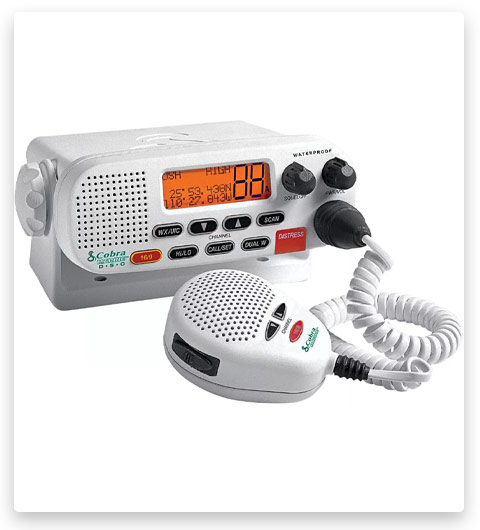
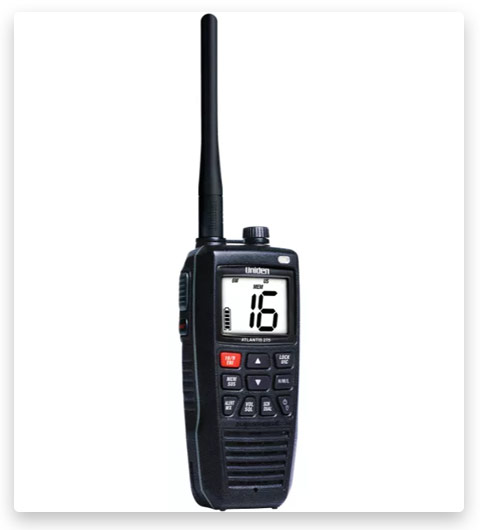
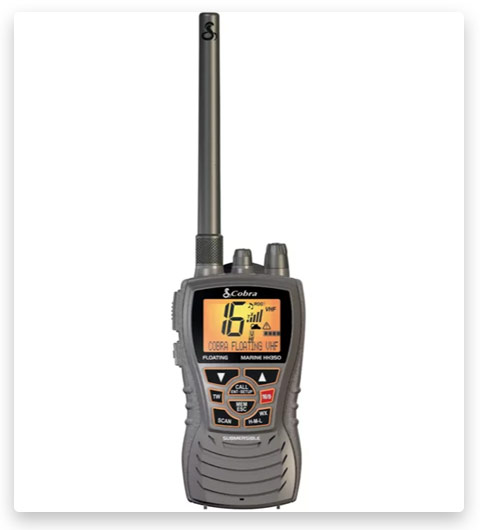
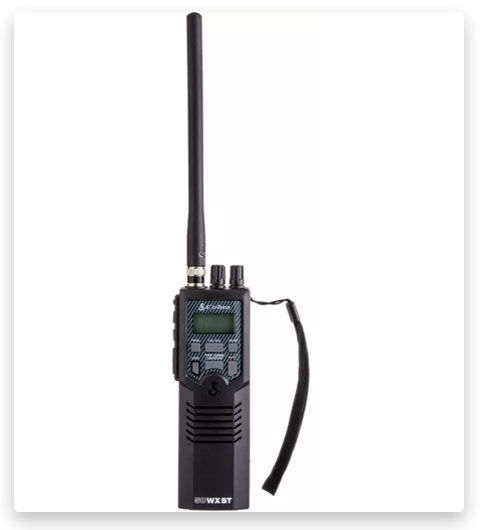
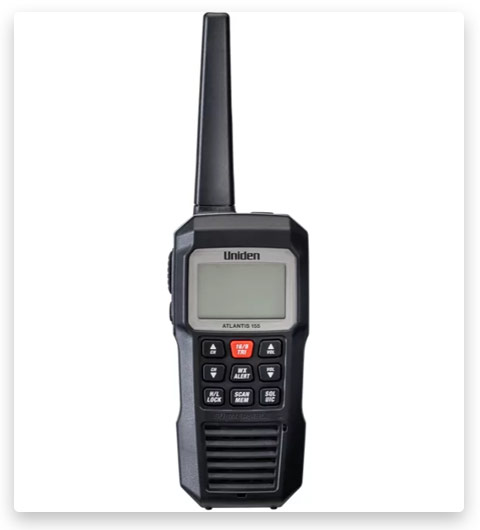
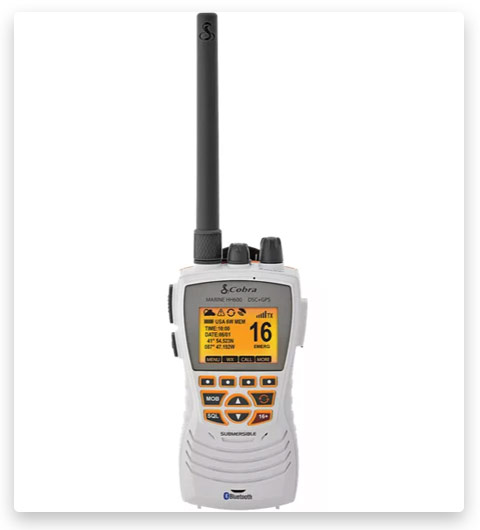
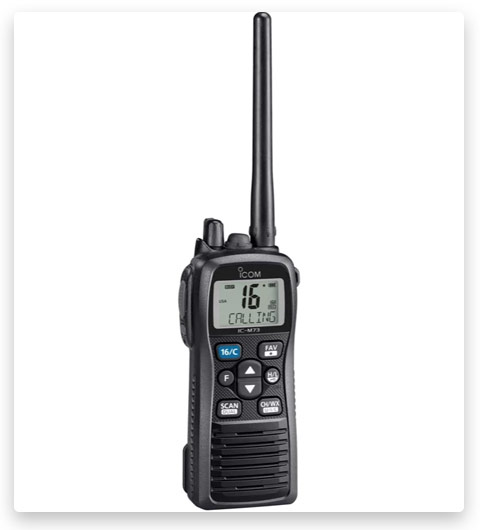
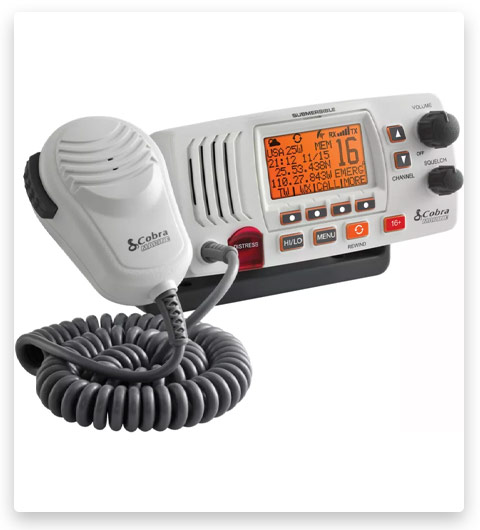
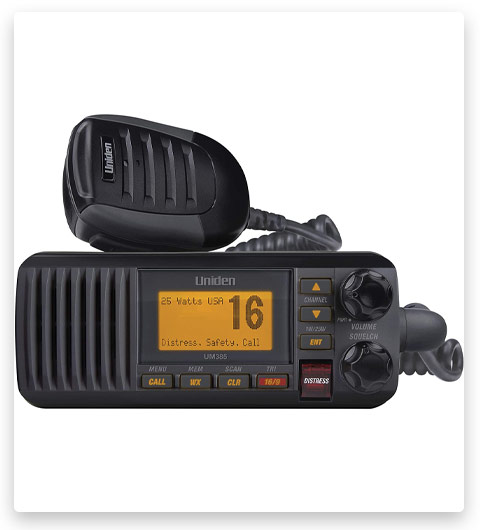
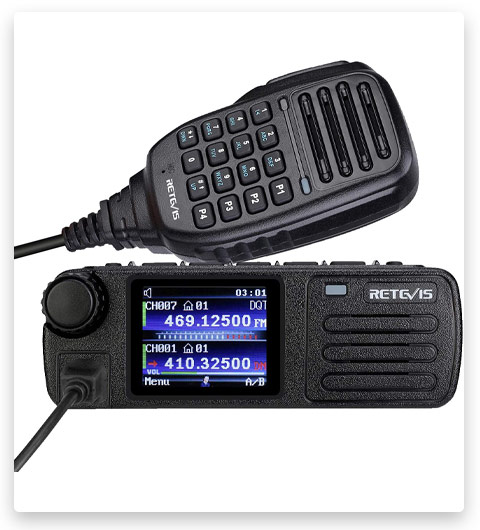
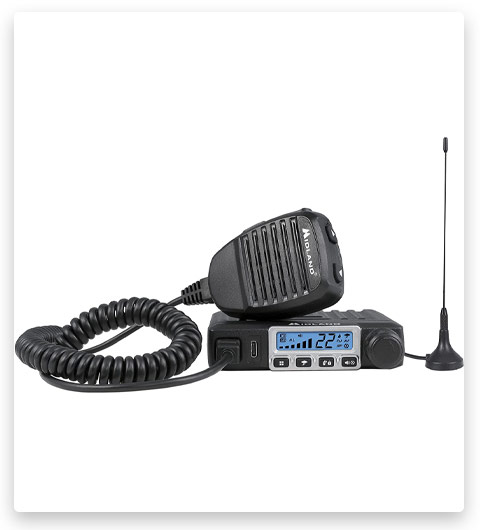
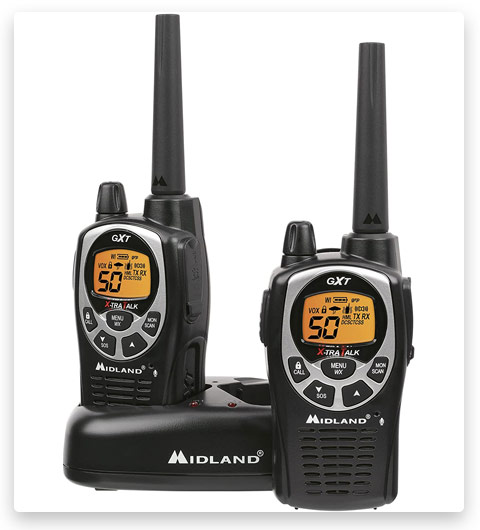
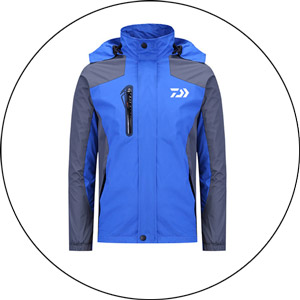
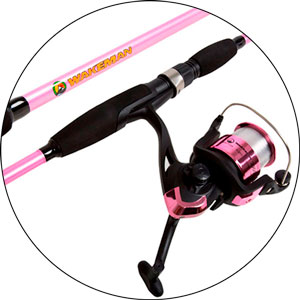
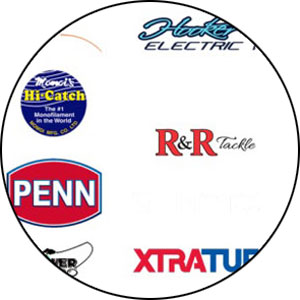
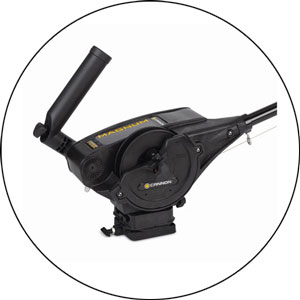
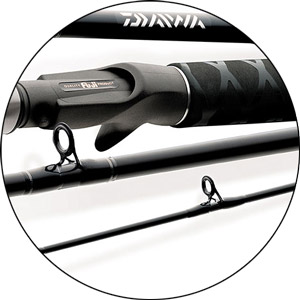
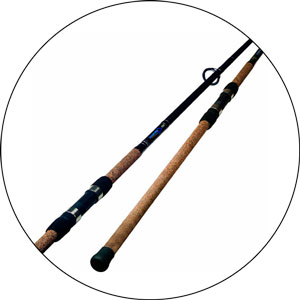
I upgraded to the Standard Horizon HX870 and have been very pleased. The DSC feature is a game changer for safety on the water.
When it comes to marine radios, two well-regarded brands are Standard Horizon and Icom. When deciding on a radio, consider if you need it to have its own GPS or AIS, or if a fixed-mount radio will suffice.
For budget-friendly options, handheld radios with features such as low/high power adjustments, weather channels, channel scanning, and quick access to channels 16 or 9 can be found for around $100. Key factors to look for are floating capability and battery life of at least 1500 mAh.
Spending a bit more, around $200, will get you a handheld with built-in GPS and DSC features. However, this is not meant for navigation, but rather to send out your location during a distress call or coordinate exchange with another boat.
The HX890 and HX40 are two examples of handheld radios to consider. The HX40 is compact but doesn’t float, while the HX890 is larger but more suitable for smaller boats. On a bigger boat, the HX40 may be a better choice with its smaller size.
Having GPS on your VHF marine radio is a plus, but its usefulness is limited if others on the water aren’t equipped to receive a DSC distress call. A standalone GPS device or a waterproof phone can be used to determine your location, but it’s important to also have a chart for navigation.
In areas with limited VHF range, it’s wise to have a backup option. PLBs, like the OceanSignal MOB or ACR ResQLink, serve as a distress signal in life-threatening emergencies but do not require a subscription.
Satellite communicators, such as inReach or SPOT, offer the ability to communicate with friends/family but come with a subscription fee. These devices communicate through satellite networks, making them ideal for remote locations.
I reside in the US and have been exploring handheld VHF radio options. Currently, I engage in day sailing, but I hope to take it to the next level soon. I am seeking advice and recommendations on a reliable handheld radio. Any suggestions would be appreciated. Thank you.
The Cobra MR HH450 is my go-to radio. It has all the features I need and the rugged design is perfect for harsh marine environments.
The Uniden UM380 is a reliable and affordable option for those on a budget. It’s compact, easy to use, and has great battery life.
The Standard Horizon HX890 is a top-of-the-line handheld VHF radio with various useful features. It has a floating design and a large display screen, making it easy to use even in emergency situations.
It also has a GPS receiver for accurate time and location tracking, DSC calling with a Man Over Board button, and long-lasting Lithium-ion battery life. Additionally, it can even be powered by alkaline batteries using a separate tray.
The radio also has an FM receiver and a white strobe light. If faced with a situation where electronics are lost or a boat needs to be abandoned, the Standard Horizon HX890 is the handheld radio of choice.
I recently purchased the Lowrance Link-8 VHF Radio and it has exceeded my expectations. The color screen and GPS functionality make it a great value.
I highly recommend the Icom M93D. It’s compact and easy to use, with great battery life. The floating design is a bonus.
For your primary VHF radio, consider getting one with GPS and DSC features. You’ll need to get an MMSI number, which can be obtained from BoatUS (free for members, nominal fee for non-members) for US-only travel or the FCC for international travel.
If you only need a supplemental radio, a simple floating handheld should suffice. Standard Horizon HX870 and HX890 are both recommended options with GPS, DSC, large screens, and a user-friendly interface.
I recently took a ROC(M) sailing course and got interested in sailing. I am now studying to get my amateur radio license. I’m in the market for a portable radio that can be useful for me when I buy a boat in the future. From what I’ve seen, most marine radios that have features like GPS and waterproofing only operate on marine VHF frequencies.
My question is: do amateur radios typically have the capability to operate on marine VHF frequencies, or are there specific models that combine both amateur and marine bands? I would appreciate any suggestions or leads, as well as any general advice for purchasing radios for those interested in amateur radio on water.
Amateur radios can have marine VHF frequency operation. There are specific models designed for both amateur and marine use that include both frequency bands. It’s best to check the specifications of a particular model to confirm its capabilities.
Legally, it is not permitted to use an amateur radio on marine frequencies as only type-approved marine radios can be used for this purpose. A radio that has the capability to transmit outside the marine band will not be approved for use in marine communications.
It appears that many amateur radios are used illegally for marine purposes. I personally purchased a pre-owned Icom 718 that had been modified to allow marine frequency transmission, which the previous owner had used on their boat. This practice seems to be quite common, as the Icom 718 closely resembles their dedicated marine radios for HF frequencies.
While many amateur radios can receive VHF marine frequencies, transmitting on these frequencies is illegal. Dedicated marine VHF radios offer several benefits for boaters, including waterproofing and GPS capabilities.
Newer marine radios also feature AIS and the ability to program a registered MMSI number, providing added safety in emergency situations. As a radio enthusiast, owning two radios – one for amateur use and one for marine use – is a great opportunity to expand my collection.
Marine radios are manufactured to stringent standards to ensure reliable communication during emergency situations. This is critical, as using non-approved radios has resulted in unsuccessful rescue attempts in some cases. For example, a case near my location involved someone who was only rescued due to their use of a Baofeng radio tuned to a local amateur repeater, which was heard by another person using a non-approved radio who then called maritime authorities.
I only plan to go boating on calm days and stay close to shore, trolling for salmon near Chicago. Originally, I intended to use my phone with a marine app for navigation, but my father has offered to send me a high-quality marine GPS unit from one of his boats in Florida.
As there are usually many boats in the area, I don’t need a heavy-duty device, but I want to make sure it has the necessary frequencies for communication with other boaters, as I have only previously boated solo on inland lakes.